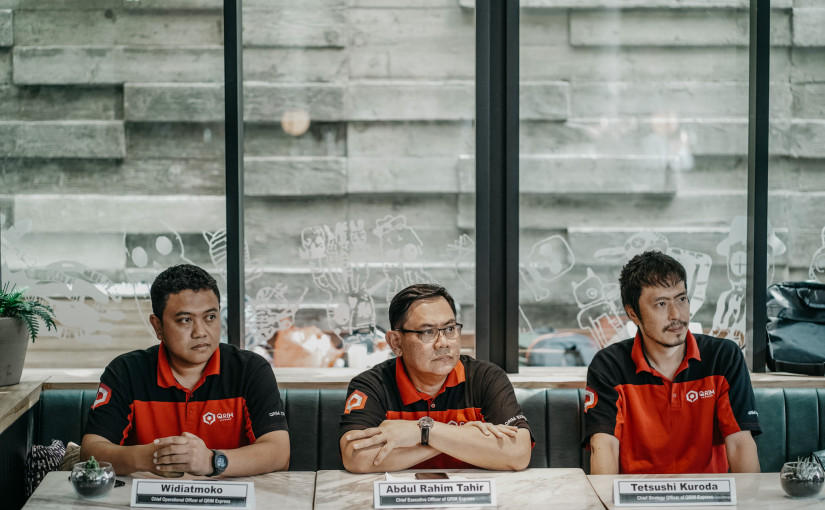Recently, the logistics industry has significantly risen up due to the “blast” of the e-commerce industry. Logistics companies strive to build up in order to provide excellent service for the community. QRIM Express is one of them. The company, formerly known as Red Carpet Logistics (RCL), is working to improve services through a technology-based approach.
QRIM Express is a logistics company owned by Sumitomo and Lippo Group. With the new identity, they are committed to providing national logistics with and real-time tracking systems. Accessible, Reliable and Convenience become their leading vision.
“Business transformation is one of the strategic steps taken by the company in order to optimize the business amid the fresh air of economic growth and the national logistics business,” QRIM Express’ CEO, Abdul Rahim Tahir said.
To date, QRIM Express has 54 hubs around Java, Sumatra, Kalimantan, Bali, and Sulawesi. They have no less than 515 vehicles and 423 couriers. The truck and motorcycle are targeted to reach 3000 units in the next few years.
“In addition, we also managed to reach more than 1.3 trillion Rupiah in revenue. In the first two quarters of 2019, QRIM Express shows up as the top player with profitable revenue growth. At QRIM, we believe to develop an end-to-end full containment model to ensure consistent and on-time deliveries,” he added.
The company is getting ready for the grand launch, it’s to be held in September 2019. The event will also introduce QRIM Express automation solutions, bringing the concept of techno-based delivery service.
QRIM Express’ CSO, Tetsushi Kuroda explained, their mission is to provide delivery services and payment platforms in its contribution to the local community development and to become a leading logistics provider that for solution-based express delivery services. This year, they will collaborate with BTPN, Ovo, True Money, and Grab Indonesia for their users to have easy access.
“We have a commitment to make business transformation by developing our C2C or retail segment. Currently, we have been competing in the B2B segment for over 60 percent, and B2C around 20 percent. Why? It is to enter the retail segment due to its rapid growth, reaching up to 37 percent per year. In our observation through the market approach, C2C in Indonesia’s logistics business has reached 80 percent, we are targeting to get 10-20 percent of the total market,” the CEO explained.
–
Original article is in Indonesian, translated by Kristin Siagian
